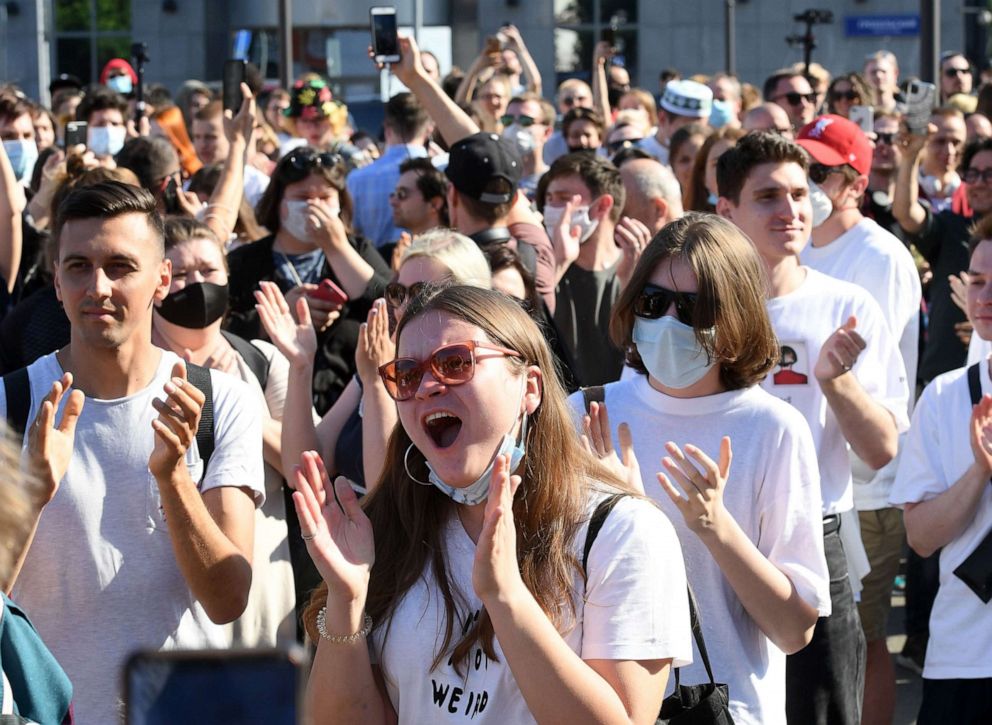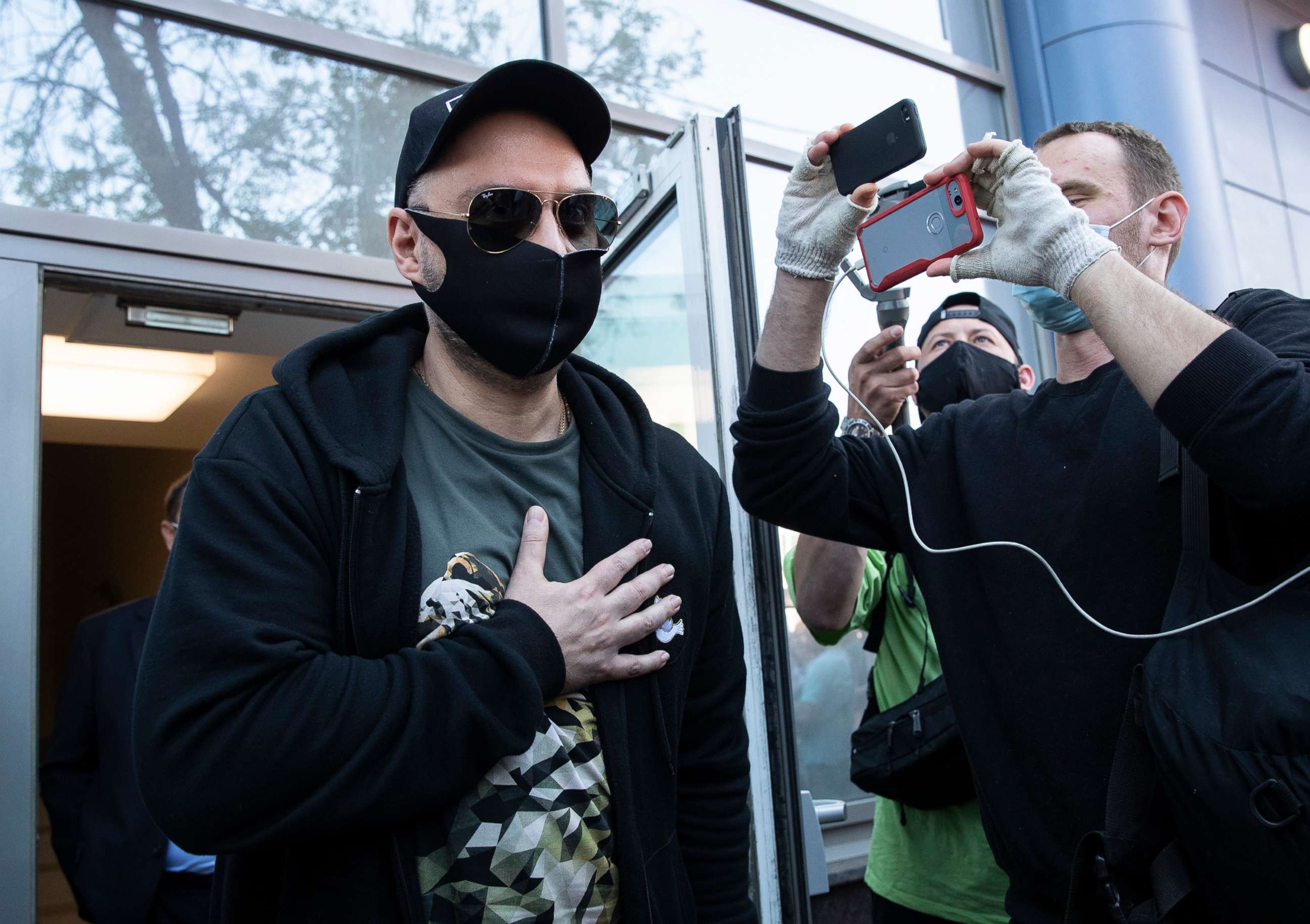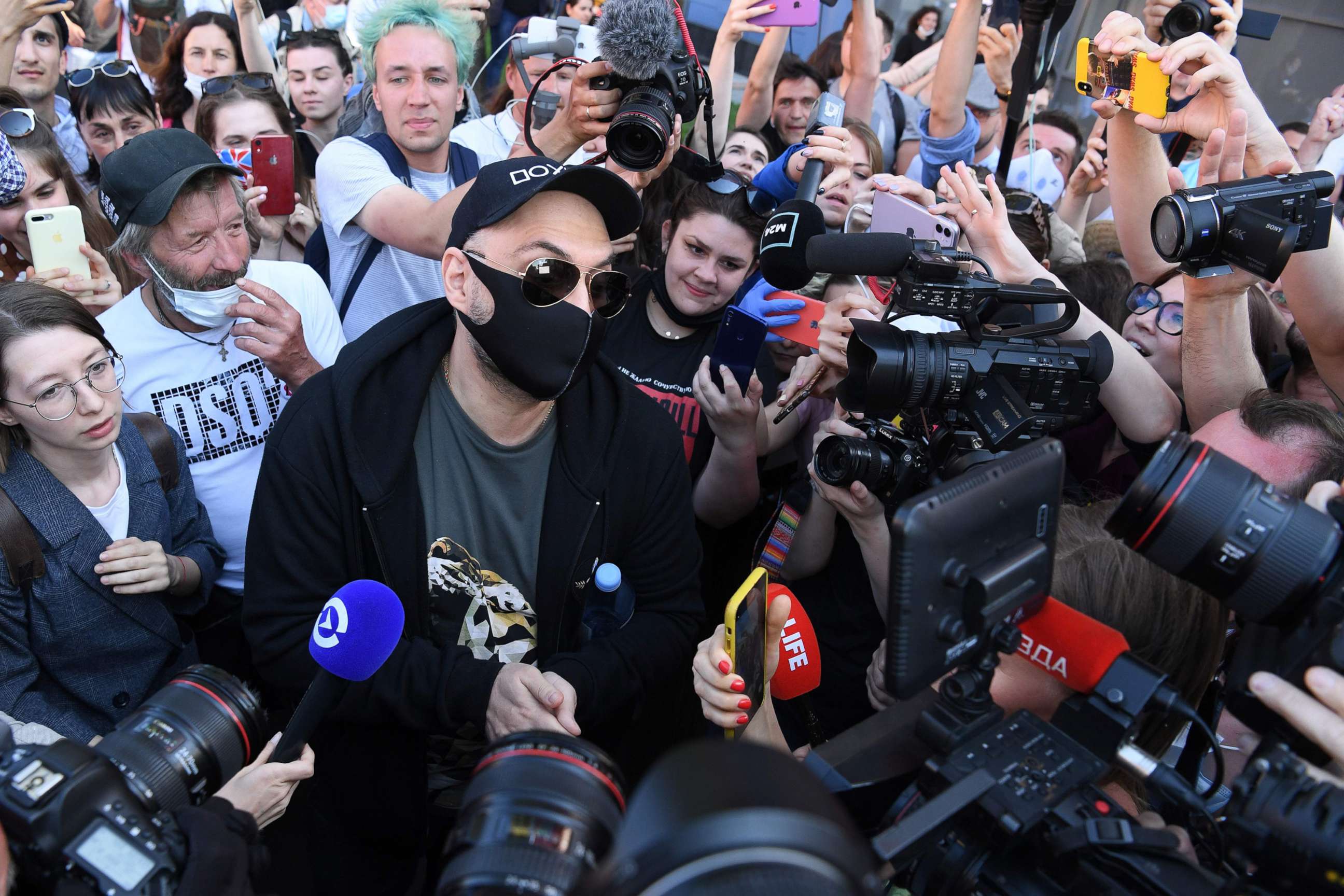Top Russian theater director Kirill Serebrennikov convicted of fraud but avoids jail in political trial
Supporters celebrated after Serebrennikov received a suspended sentence.
A Moscow court handed one of Russia's most celebrated theater directors a three-year suspended prison sentence after convicting him of fraud charges in a case that has been widely denounced by international rights groups as a political show trial and that many in the Russian arts had feared would end in real jail time.
Despite the conviction for director Kirill Serebrennikov, the suspended sentence was celebrated as a victory, essentially meaning that the authorities had decided to drop their persecution of him. Outside the court, a large crowd of his supporters clapped and cheered.
Serebrennikov is perhaps Russia's most successful contemporary director, celebrated with awards internationally and in Russia. He was arrested in 2017 and his case became seen as one of the country's most high-profile political trials. He and three co-defendants were accused of embezzling grants from Russia's culture ministry for a theater project and he spent almost two years under house arrest.
The case though was widely viewed as a punishment for his work, which often deals with themes antagonistic to the conservative, nationalist values held by hardliners in the Kremlin. The charges brought by prosecutors included that he and his colleagues had defrauded the culture ministry by not putting on the shows required by the grants. In reality, hundreds of people had attended the performances and they had been reviewed in the Russian press.
Hundreds of cultural figures in Russia and abroad have called for Serebrennikov's release, describing the allegations as absurd.

While his work frequently deals with topics challenging for the Kremlin, including LGBT love, as well as political repression, Serebrennnikov worked at the heart of Russia's cultural establishment and was a star among the Moscow elite. He was artistic director of the Gogol Center, the capital's leading contemporary theater, but was also invited to stage ballets at the Bolshoi Theater.
His arrest sent shockwaves through Russia's artistic community and drew comparisons to Soviet-era political trials. While prosecution of political activists is common in Russia, trials of cultural figures -- especially of Serebrennikov's stature -- are almost unheard of. The case was seen as emblematic of a struggle within the Kremlin elite of hardline conservatives and more outward facing liberals.
In 2016, he directed the film "The Student," which was seen as a critique of the Orthodox Church. And in 2017, when he was already under arrest, his ballet "Nuriyev" was delayed at the Bolshoi Theater amid official concerns about its overt portrayal of famous dancer Rudolf Nuriyev's homosexuality.
Ahead of the hearing on Friday, Human Rights Watch and other freedom-of-expression groups demanded that prosecutors drop the charges against him. HRW called the trial a "thinly veiled way to retaliate against Serebrennikov for his political criticism and to send a chilling message to other artists -- who have no choice but to accept state funding to survive as artists -- to refrain from political criticism."
The court on Friday convicted Serebrennikov of embezzlement, saying his guilt has been entirely proven, as well as Yuri Itin and Alexey Malobrodsky, the former general director and ex-senior producer at Seventh Studio, where the director worked. All three though received suspended sentences, with the judge saying they believed "correction was possible" without real jail time.

The court also fined the three men and ordered them to repay the money, $1.85 million, allegedly embezzled from the Ministry of Culture. A fourth defendant, a former culture ministry worker, Sofia Apfelbaum, was also fined but released from paying it.
Serebrennikov was also barred from holding any positions at state cultural bodies for three years.
Serebrennikov's lawyer, Dmitry Kharitonov, said he would appeal the verdict and would seek to acquit him.
Last year, it had already appeared that authorities had turned against the case after Serebrennikov was released from house arrest and in September a judge sent the case back for further investigation, often a sign it will be dropped.

But prosecutors abruptly brought the case back and requested several years in jail for Serebrennikov. Many had expected Friday's hearing would end with him being jailed.
Highlighting how Serebrennikov's case has divided Russia's elite, the verdict releasing him was hailed by the head of the Kremlin's international broadcaster, RT, Margarita Simonyan.
"The state just avoided making a serious mistake, which, it must be said, it quite well could have made," Simonyan wrote on social media.




